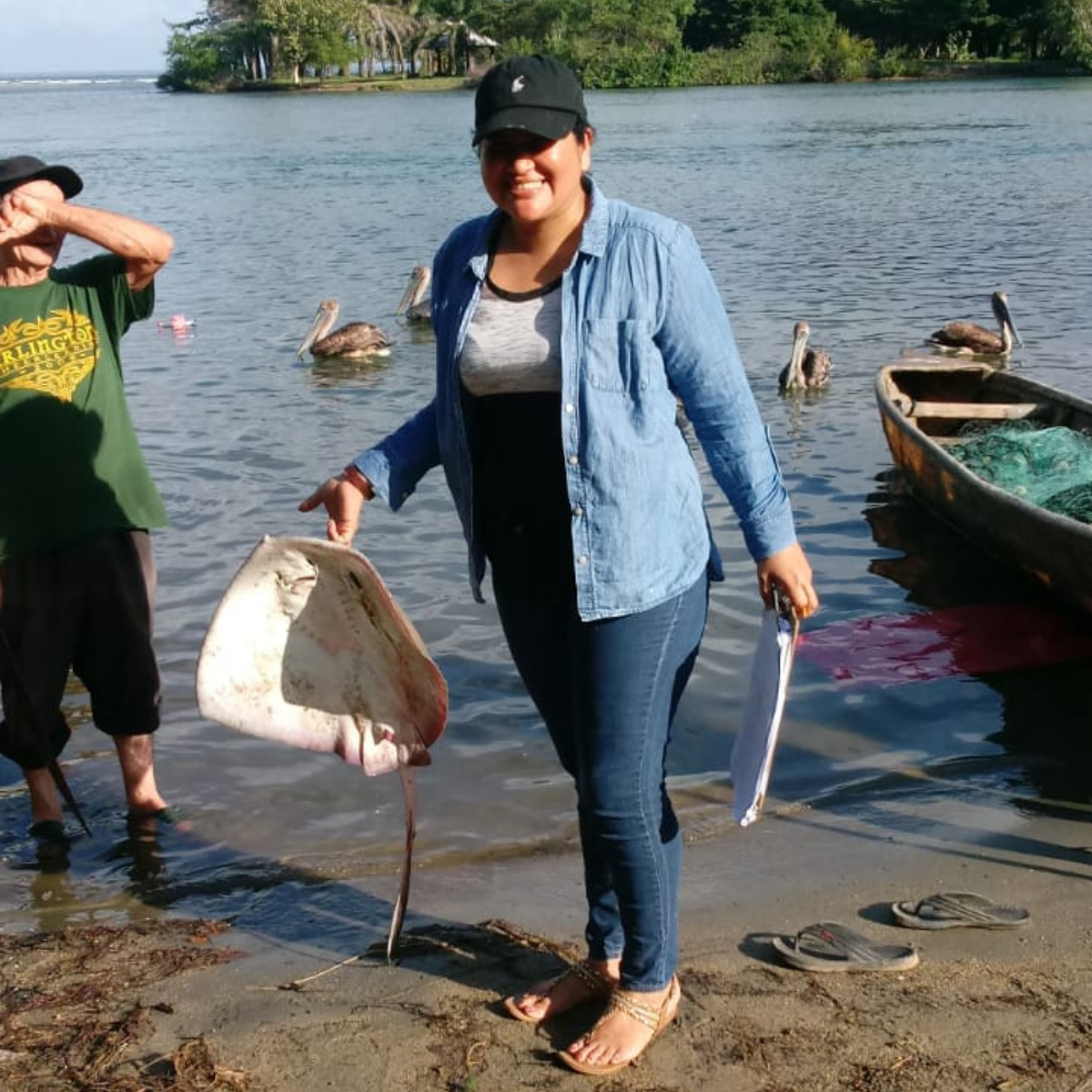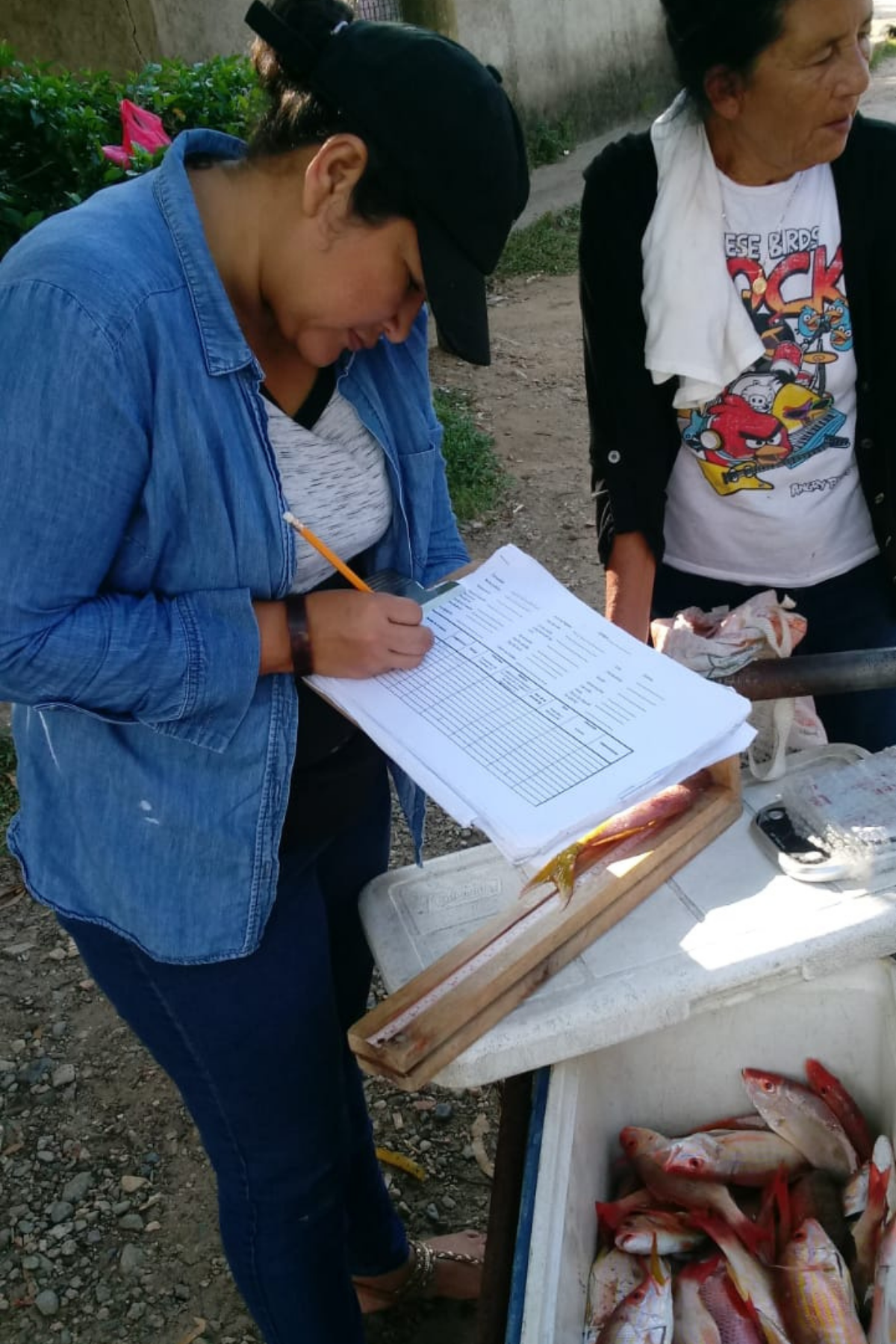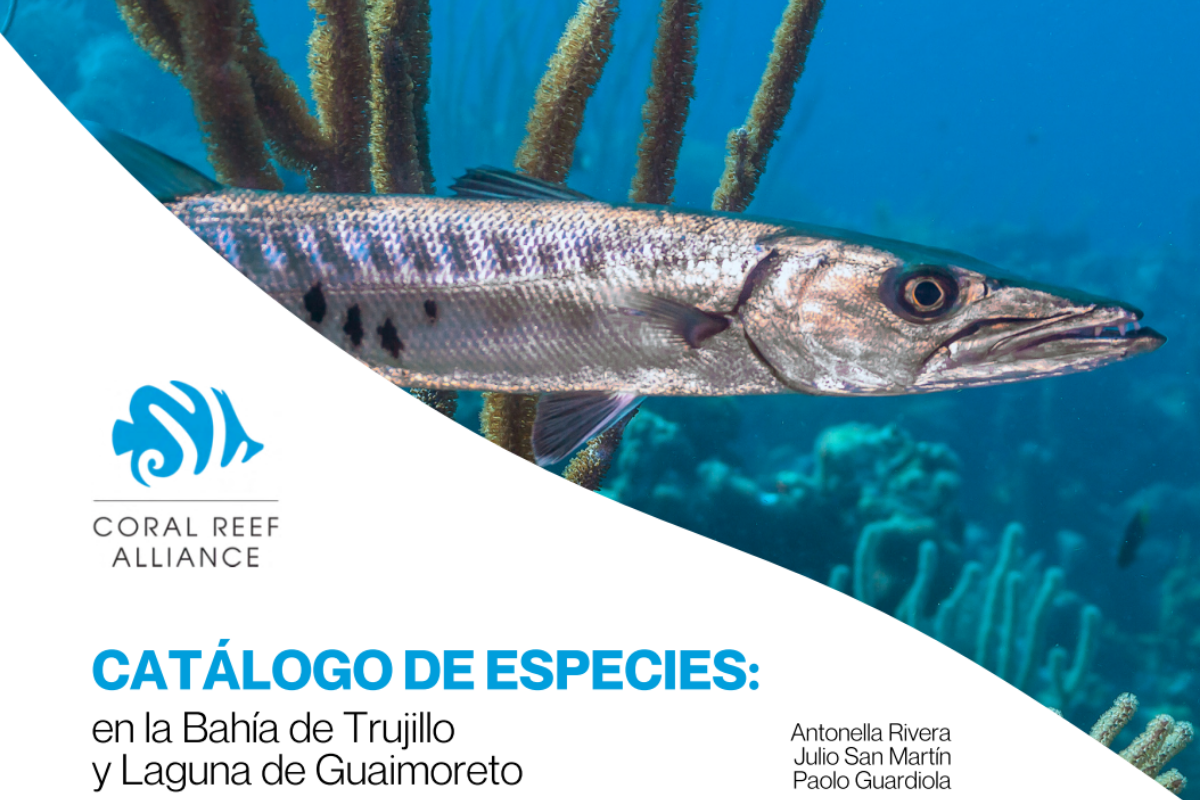When Coral Reef Alliance (CORAL) researchers first began working with fisheries on the North Coast of Honduras, they encountered an all-too-common dynamic: Local fishers held a wealth of knowledge of the various fish species of the region, but that information wasn’t documented anywhere. The local knowledge is passed down from generation to generation, but because it isn’t documented, it’s often left out of conservation programs and research efforts.
Now, by partnering with the fishers to create detailed fish catalogs for the region, CORAL has helped preserve this vast local expertise and make it more accessible to the general public. CORAL recently published two Honduras fish catalogs, free and available to anyone: One for Tela Bay and another for Trujillo. These catalogs are the first of their kind in the area and are living documents that will be updated with new information and species over time.
The new catalogs are an important example of CORAL’s commitment to working side-by-side with local communities to help protect coral reefs.
“One of the things that makes CORAL special is that we aim to empower local communities and strengthen local organizations so they can play a role in protecting their own resources,” says Dr. Antonella Rivera, Principal Investigator for CORAL in Honduras. “Sometimes, this means sharing scientific information in an easy and understandable way but, many times, this means collecting information and documenting all the things they already know.”
CORAL’s local-first approach is particularly important in places like Honduras, where artisanal fisheries are considered “data-poor” due to the lack of scientific information available, Rivera says. Local communities often have deep, first-hand knowledge of the fish species they are harvesting, but that information isn’t documented in more formal ways. Because of that, the information is often left out of management plans or is disregarded by regulators and policymakers.

The catalogs address this gap with names, photos, drawings, characteristics, and biological traits of the many fish in the region, bringing local knowledge to the forefront of conservation efforts. In addition, the catalogs can help researchers understand changes over time and any challenges they may face in trying to protect fish species. Now, future fisheries management plans can be built upon the fish characteristics that are so deeply understood by the communities who depend upon them the most.
“Developing species catalogs was the first step in collecting scientific information to inform management,” Rivera says. “These catalogs are useful to gather scientific information on what species can be found in the area, their population status—are they overexploited?—and then inform management. Hopefully, we’ll look back on this work 10 years from now and see that these same species are still alive and thriving in our regions.”

CORAL also included the local names of each fish species to empower communities and ensure the guides reflected their extensive ecological knowledge, Rivera says. “Usually, when we talk to communities, the first thing we say is, ‘We have been studying fish through books for years, but you are the true specialists because you’ve been studying your local fish all your lives,’” she said.
CORAL’s Paolo Guardiola helped lead these efforts in Trujillo, working with local fishers to photograph their catches and research each fish species. In addition to documenting species of great commercial importance to the area, the catalogs will serve as educational tools for tourists, schoolchildren, conservationists, and others.
“This work would not have been possible without the cooperation of fishing communities and community scientists, as they are the ones who have supported us throughout this time, providing us with their support, information about their fishing and, most importantly, their confidence,” Guardiola said.

